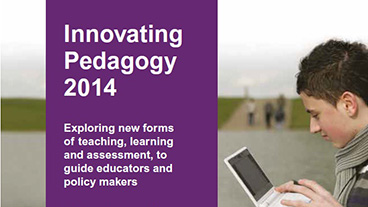Reflexive strategy realised in policy: from hokey cokey to hocus pocus
Strategy is usually about the longer term, as such it needs to be reviewed, but it is hardly a matter of reflex. Crisis management within a strategy should be an operational contingency, the implementation of contingency plans.
As posted several years ago, I've been fascinated by the need for vulnerable people to 'beware of reflex moves'. The example I have comes across repeatedly is due to the people community mental health services encounter. Older adults who are newly bereaved (and suddenly become vulnerable) and for whom it is (also) suddenly judged by well-meaning family members that they should move their home to be nearer the family. This decision is often made quickly, when the grieving if it is ongoing, has only just started and decision-making is impaired to say the least.
It is a bit of stretch, but we can relate this to health, social care and policy. Let's see ...
As an evidence-based activity health care is far removed from "hokey cokey". To be precise its Levenshtein distance (or edit distance) is 8 :-)
Unfortunately, a recent HSJ/Serco Commission on Hospital Care for Frail Older People concluded that health and social care integrated care is a "myth" in terms of being the "silver bullet" for the NHS's financial difficulties (Barnes, 2014).
I'd been wondering about the problems that have been solved and those still ongoing since I began my nursing career in the late 70s. You could call the latter personal legacy career issues. The commission's report describes the current flagship project the better care fund, as having been planned in a "hokey cokey" fashion.
Of course, integration is as many-splendored in its transformational promise, as it is many tentacled in its complexity. What is being integrated? To what extent does this include disciplines, finances (budgets), philosophy, location, record systems, management, policy, accounting, reporting and accountability ...? How do we measure and recognise success?
On a positive side the Levenshtein distance for "hocus pocus" from "health care" is 10, so that maybe reassuring?
The worry is that there is form elsewhere, also highlighted in HSJ (Illman, 2014).
The 3 Million Lives telehealth programme has been scrapped. If it is a measure at the time of this post, the last tweet was 18 March 2013.
Given the major upheaval that the NHS has been through this is hardly the ideal environment for policy making that must engage staff and the public.
Engagement - crucial!
Barnes, S. (2014) Landmark report criticises integration policy. Health Service Journal, 21 November, 124: 6424; pp. 4-5.
Illman, J. (2014) NHS England outlines telehealth successor, Health Service Journal, 26 September, 124: 6416; p.13.







 orcid.org/0000-0002-0192-8965
orcid.org/0000-0002-0192-8965